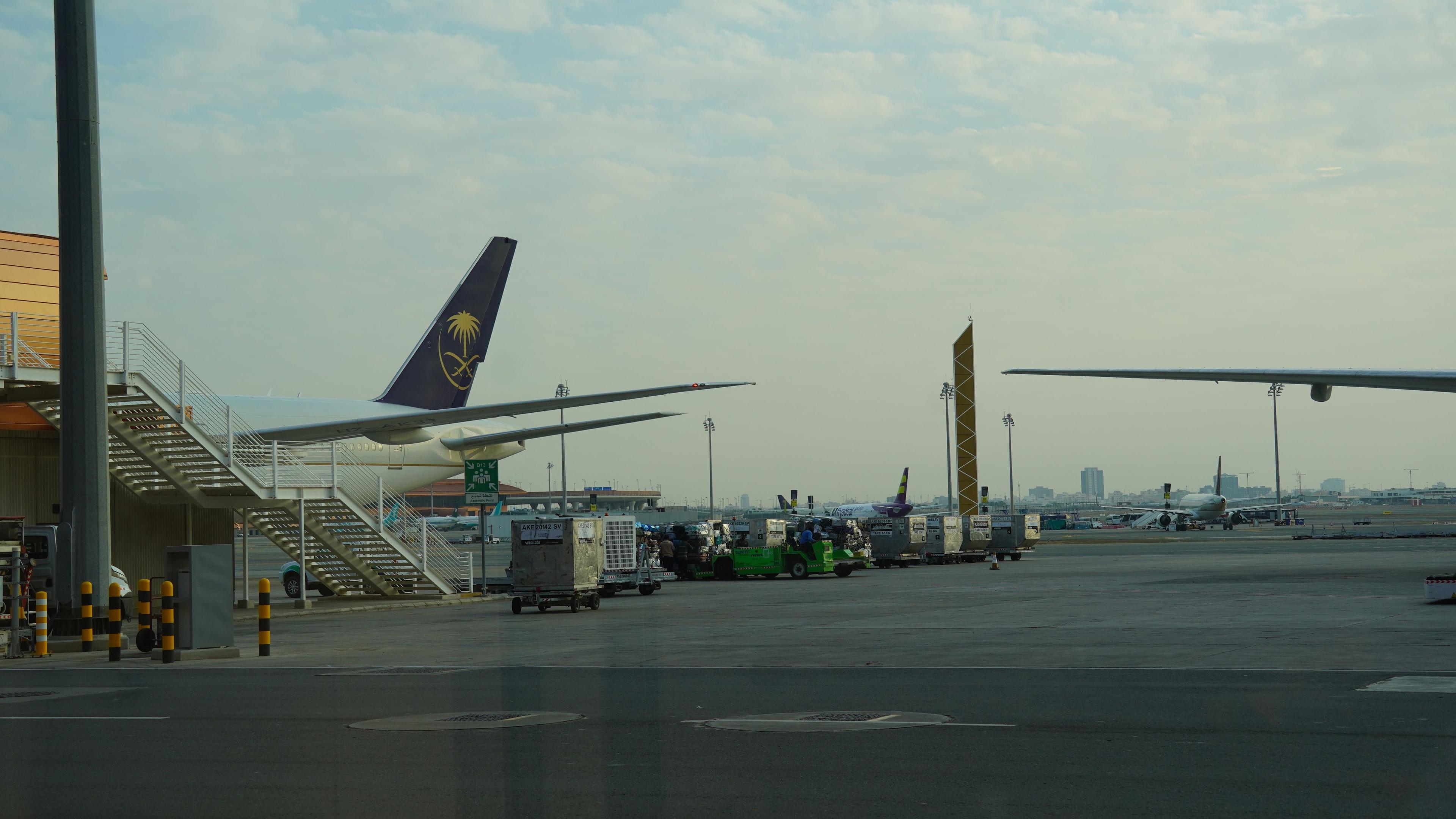
Spotlight: Saudi Arabia’s Bold Aviation Ambitions Take Center Stage at Paris Air Show
At the Paris Air Show, Saudi aviation authorities and leading entities strengthened cooperation agreements and partnerships with their global counterparts.
At the Paris Air Show, Saudi aviation authorities and leading entities strengthened cooperation agreements and partnerships with their global counterparts.
Presently, the aviation sector contributes $90.6 billion to Saudi Arabia's economy, equivalent to 8.5% of the country's GDP, while directly employing 141,000 people and supporting a total of 1.4 million jobs.
Last week at the Paris Air Show, Saudi Arabia solidified its position as a leader in the global aviation market, showcasing myriad investment opportunities across the industry while making headlines with significant deals and partnerships with global companies.
Here is a summary of recent aviation-related developments and what they mean for the economy.
Saudi Arabia and France Discuss $2.6 billion Aviation Sector Investment Opportunity
A high-level Saudi-French roundtable, chaired by Abdulaziz bin Abdullah Al-Duailej, president of the General Authority of Civil Aviation, identified investment opportunities worth over $2.6 billion across airport infrastructure, air navigation, and advanced technologies.
Key Outcomes:
Ground Support and Workforce Development: Agreements involving Saudi Ground Services Co., France’s Alvest Group, and Arabian Alvest Equipment Maintenance Co. focus on strengthening ground support capabilities, localizing technology, and advancing workforce training.
Training Program: A separate training initiative led by the same partners will offer accredited diploma programs in technical services and ground equipment maintenance, directly addressing the Kingdom's need for specialized workforce development.
Digital Transformation: Saudi firm Cluster2 Airports signed a memorandum of understanding with Airbus to deploy advanced digital solutions across its airport network.
These strategic partnerships support the National Transport and Logistics Strategy's ambitious goal of raising the aviation sector's GDP contribution from 6% to 10% by 2030, as well as reflecting the deepening economic ties between the two nations, with non-oil trade already exceeding $5.33 billion in 2024.
Riyadh Air Prepares for Takeoff with Strategic Fleet Investment
The Saudi-French talks come as Saudi Arabia gears up for the commercial launch of Riyadh Air, the country’s new national carrier.
Riyadh Air has taken a significant step toward its inaugural flight with an order for up to 50 Airbus A350-1000 aircraft. The deal, comprising 25 firm orders and purchase rights for an additional 25 aircraft, equips the airline with the long-haul capabilities essential for its ambitious global connectivity goals.
Once fully operational, the airline aims to serve over 100 destinations globally by 2030, with the A350-1000's exceptional range of over 16,000 kilometers enabling direct connections to virtually any global destination. Its economic impact is evidenced in its role in creating 200,000 direct and indirect jobs and its projected GDP contribution, expected to surpass $20 billion.
The airline is expected to operate its first flights later this year, helping Saudi Arabia expand annual passenger capacity to 330 million and cargo to 4.5 million tons by 2030.
PIF’s AviLease to Acquire 77 Airbus Jets
The Public Investment Fund's aircraft leasing arm, AviLease, has made headlines with its expansion strategy, securing deals for up to 77 Airbus aircraft.
The comprehensive agreement, announced at the Paris Air Show, includes 55 A320neo Family aircraft and 22 A350F freighters, with deliveries scheduled through 2033.
With a current portfolio of 200 aircraft leased to 48 airlines worldwide, AviLease is rapidly becoming one of the world's top aircraft lessors.
According to Airbus, these aircraft offer at least 20% lower fuel consumption compared to previous-generation freighters, along with improved loading capabilities and extended range, critical advantages in the competitive cargo market.
AviLease recently secured a $1.5 billion unsecured revolving credit facility, attracting commitments from 20 international banks across Europe, Asia, and North America.
Worth noting that Airbus officially opened its regional headquarters (RHQs) in Riyadh last year.
Sustainability Takes Center Stage in GACA’s Aviation Strategy
The on-ground presence of Airbus allows it to forge new partnerships with leading authorities in Saudi Arabia and fuel greater scale. A recent example of this is its partnership with the General Authority of Civil Aviation (GACA), which aims to fuel sustainable aviation practices.
The partnership centers on sharing expertise in low-carbon and sustainable aviation fuel, while developing specialized human capacity in environmental sustainability.
This initiative aligns with the Civil Aviation Environmental Sustainability Program (CAESP) and demonstrates Saudi Arabia's recognition that sustainable practices are not just environmentally necessary, but competitively advantageous in the evolving aviation market.
These developments serve as a bright signal of the aviation industry’s success in receiving FDI, highlighting its role in attracting foreign companies to set up a business in Saudi Arabia.
More from Saudi Market Outlook




